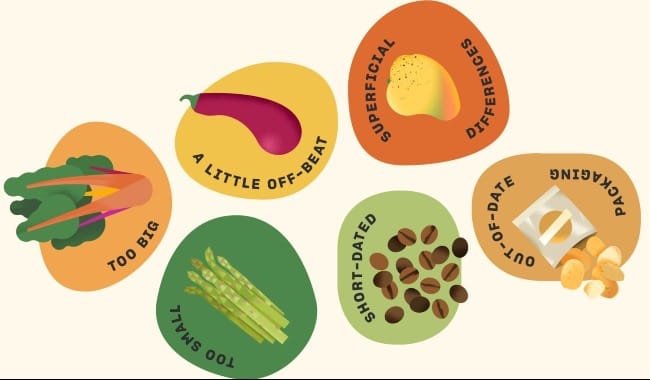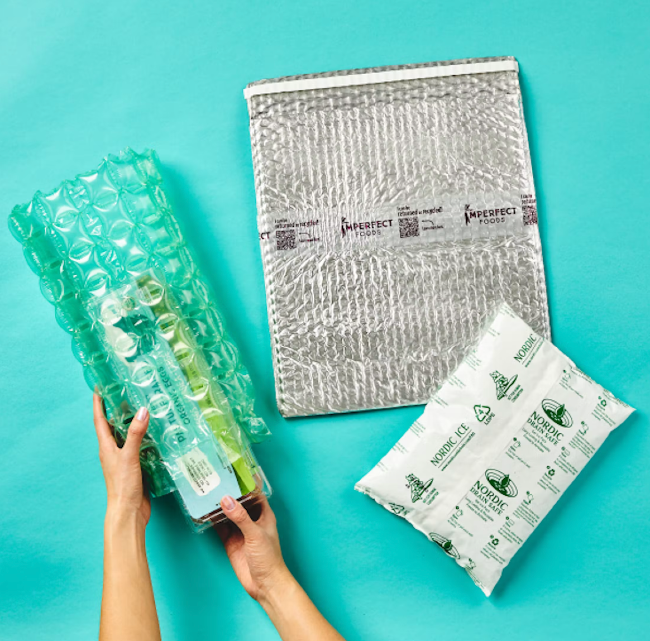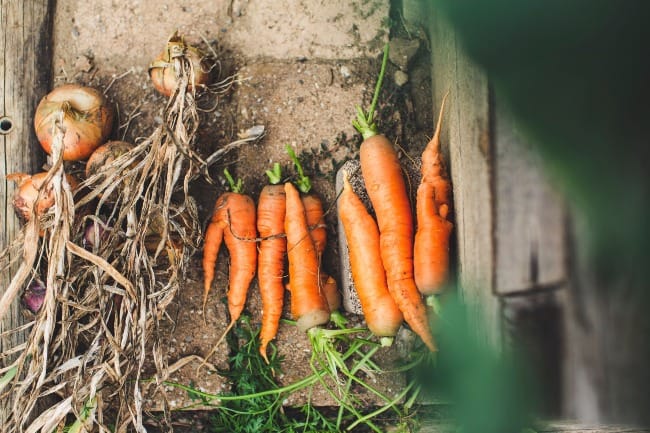The convenience of having something delivered right to your doorstep has an allure that many of us can’t turn down. Everything from makeup to meat can come in mail orders and subscription boxes, and online shopping profits are up into the trillions of dollars. But this convenience comes with a cost—the packaging, the gas for the transportation, and food preservation techniques can all have negative environmental costs. It is possible, however, to choose food delivery systems that can help the planet instead of hurting it.
Food delivery can be a part of practical earthkeeping by minimizing food waste. Food waste is a global issue, but especially prevalent in the US, where I live. According to Feeding America, the US wastes 119 billion pounds of food annually, which is almost 40% of all food in the country. Much of that food waste is "ugly" or "imperfect" produce that doesn't look nice enough for traditional grocery stores. Enter: Imperfect Foods, Misfits Market, and similar programs around the globe, such as OddBunch and Funky Food.

Imperfect Foods and Misfits Market are two of the most well known distributors of "ugly" food, and cover most of the lower 48 United States in delivery zones. They partner with farmers and producers to save extra produce, fruits, veggies, and more from being wasted at the farm or in stores. While there has been some controversy with "ugly" food delivery services, food waste is not a one-note problem, and these boxes can remain part of a wide array of solutions to our food and environmental difficulties. For example, Imperfect Foods donates products that don't sell to organizations working to combat hunger, and Misfits Markets is committed to affordability and making high quality products available to people who may not otherwise have access, like those living in a food desert.
By reducing food waste, both companies help customers save food, water, and carbon emissions, since when less food is wasted, the resources that helped produce that food are not wasted. The two companies also prioritize eco-friendly packaging: Imperfect Foods offers closed loop packaging, which means that packaging is picked back up and reused or recycled, preventing more than 6.5 millions pounds of packaging waste from ending up in landfills, and Misfits Market uses compostable, reusable, and recyclable packaging materials.

The delivered-right-to-your-door boxes are offered with a variety of different plans, schedules, and options, so you can customize your experience to what works for you. In my experience, you'll also sometimes get a great laugh: some of the produce you might receive is truly wacky looking.
During the pandemic, I got deliveries from Imperfect Foods, and I felt like it was all good quality, worth the cost, and overall easy to use. When I moved from a house with roommates into my apartment with my husband, it was harder to coordinate deliveries to make sure someone was home to receive them (they will drop the box off if no one is home, but I had some concerns about whether the box would still be there when I got home). Since moving into a different apartment, I'm considering giving Misfits Market a try. If you are already subscribed to one of these or a similar program—or if you try one out—please let me know how it goes for you!

If you’re interested in some kind of produce box but these don't sound like what you want, they don't deliver to your area, or you want something super local try searching for a CSA, or Community Supported Agriculture, box in your area. Often local farmers will offer subscriptions by mail or pick up that feature organic, local, seasonal produce, meat, or more. I'll write more about CSA boxes and eating local in future columns!
Feel free to email me anytime at jessalyn.gentry@circlewood.online.